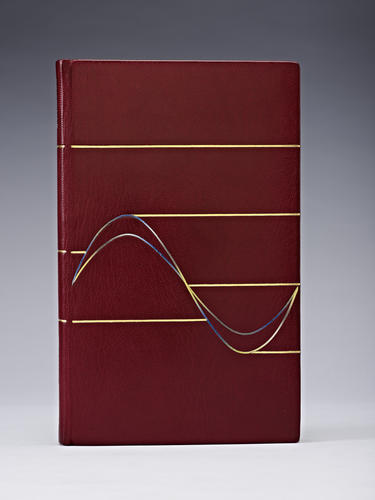Seamus Heaney (1939-2013)
Beowulf 1999
RCIN 1101440
-
Seamus Heaney was an Irish poet, playwright, translator and lecturer who won the Nobel Prize for Literature in 1995. He published his translation of 'Beowulf', an Anglo-Saxon poem, in 1999. The poem is one of the oldest known works of English Literature, and describes the adventures of the hero Beowulf of the Geats. Beowulf comes to the aid of the King of the Danes Hroðgar whose Hall is plagued by the monster Grendel. Beowulf slays Grendel, and, when she seeks revenge, his mother. Beowulf later becomes King of the Geats, in what is now Sweden, and perishes after many years of successful rule whilst slaying a dragon which is terrorizing his kingdom. Old English poetry, including Beowulf, did not rhyme, but instead had an alliterative structure, with each line split into two halves, with two metrical stresses per half. Heaney's translation reflects this, reproducing the strong rhythm and alliteration of the original poem. Heaney's has become one of the seminal translations of the poem and has been regularly anthologised. Heaney writes that part of what attracted him to the task of translating the ancient poem was the way in which he saw Anglo-Saxon as a shared root for the modern English and Irish languages, which he had previously felt were oppositional. Heaney, although translating into English, uses some Irish words, for instance 'bawn' for 'castle'. He writes in the foreword to the translation: 'Putting a bawn into Beowulf seems one way for an Irish poet to come to terms with that complex history of conquest and colony, absorption and resistance, integrity and antagonism, a history that has to be clearly acknowledged by all concerned in order to render it ever more 'willable forward / again and again and again.' This edition of Heaney's Beowulf was bound specially by Stuart Brockman in 2002. The binding is of red calf leather with tooling in gold and blue and blue Japanese paper endpapers. Brockman explains that the gold lines on the boards represent the horizon and the sea, while the blue-green lines represent waves. The blood red binding reflects the violence and death in the narrative, while the deep blue endpapers represent the sea and the sky. Beowulf revolves around descriptions of violence and fighting prowess, but is enriched with beautiful and wild descriptions of nature, including the sea on which the hero travels. This book was presented to Her Majesty Queen Elizabeth II on the occasion of her Golden Jubilee by the Members of the Medical Household.
Provenance
Gift to Queen Elizabeth II for the Golden Jubilee, 2002, from serving and retired members of the Medical Household. -
Creator(s)
(translator)(publisher)(binder)(calligrapher)Acquirer(s)
-
Category
-
Other number(s)
ISBN 057120113XAlternative title(s)
Beowulf / translated by Seamus Heaney








